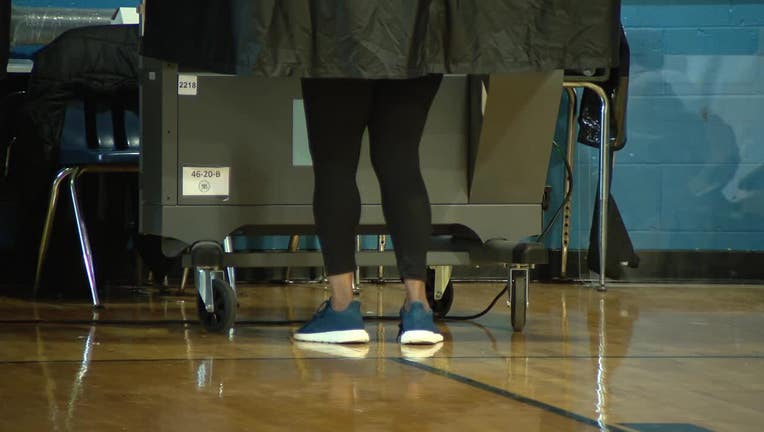Pennsylvania county won't offer up voting machines to election audit

HARRISBURG, Pa. - One of three counties targeted by a Pennsylvania state lawmaker for an Arizona-style "forensic investigation" of the state’s 2020 presidential election sought by former President Donald Trump will not allow third-party access to its voting machines.
The three commissioners in rural Republican-controlled Tioga County announced the decision Tuesday, six days after receiving a sweeping, five-page request from Republican state Sen. Doug Mastriano for access to documents, information and equipment.
The county's solicitor, Christopher Gabriel, said Wednesday that the thrust of Mastriano's request — under the threat of a subpoena — involves access to Tioga County's voting machines.
That could mean losing those machines, Gabriel said.
"We can’t be in a position where we don’t have the election machines, because we have to run the next election, these are extremely expensive machines and our position is we need to follow the direction that (Acting Secretary of State Veronica Degraffenreid) has given us," Gabriel said.
Degraffenreid, Democratic Gov. Tom Wolf's top election official, told counties last week that the state would decertify any election equipment that is subject to any such third-party access, rendering it useless in an election.
Degraffenreid cited the U.S. Department of Homeland Security's designation of election equipment as "critical infrastructure," and said third-party access — certainly of the kind envisioned by Mastriano — would jeopardize the security and integrity of the systems.
The commissioners' chairman, Roger Bunn, a Republican, said the county had audited the voting machines and systems used in the 2020 presidential election, according to requirements in state law, and had found no significant problems.
Trump won in Tioga County by three-to-one over Democrat Joe Biden, but Biden won the battleground state by just over 80,000 votes, or about 1 percentage point, prompting a torrent of baseless falsehoods from Trump about massive voter fraud.
No county election board, prosecutor or state official has raised a concern over any sort of widespread election fraud in November’s election in Pennsylvania.
Courts have thrown out Republican claims about fraud or illegalities, and critics say an election audit is duplicative, given the audits already carried out by county and the state.
In any case, Mastriano's information request does not remotely resemble a post-election audit plan that is recognized by the election administration community, said Edward Perez, global director of technology development at the California-based OSET Institute.
In his letter last week, Mastriano asks counties to respond by July 31 with a plan to comply with his requests, and warned that the Senate committee he chairs, the Intergovernmental Operations Committee, could vote to issue a subpoena if a county does not adhere to it.
Gabriel said Tioga County had not yet formally responded to Mastriano.
In a statement Wednesday, Mastriano's office did not address Tioga County's decision, but said Wolf's Department of State "is being used to intimidate county officials and obstruct a Senate-led forensic investigation."
Speaking during an appearance in the studio of WEEO-FM in Chambersburg on Wednesday, Mastriano also appeared to blame voting-machine manufacturers for "threatening" counties against letting third parties inspect their equipment.
"We can’t just have voting machines here that only one company that manufactures (them) can have access to," Mastriano said. "They should be able to be opened up and reviewed obviously by companies that the legislative body wants to hire, not that the governor wants to bring in."
Two other counties targeted by Mastriano — Republican-controlled York County and the heavily Democratic city of Philadelphia — have declined comment on how they plan to respond.
Mastriano, who has talked of Trump asking him to run for governor, has helped spread Trump's conspiracy theories about widespread fraud in the election, and traveled to Arizona in June to see the audit there firsthand.
Mastriano's massive undertaking could cost millions of dollars, and major questions are unanswered, such as who will do the work and where such a vast amount of documents and equipment would be stored.
Senate Republican leaders officials have been silent about Mastriano's actions, or whether they would contribute money to it. The Senate last year reported $66 million in its reserve account.
Private organizations are raising money for an audit, Mastriano is counting on private funding, at least in part.
Mastriano told WEEO-FM radio Wednesday that he had not decided how to fund the audit, but said he is recommending three strategies, all of which involve a blend of public and private financing.

